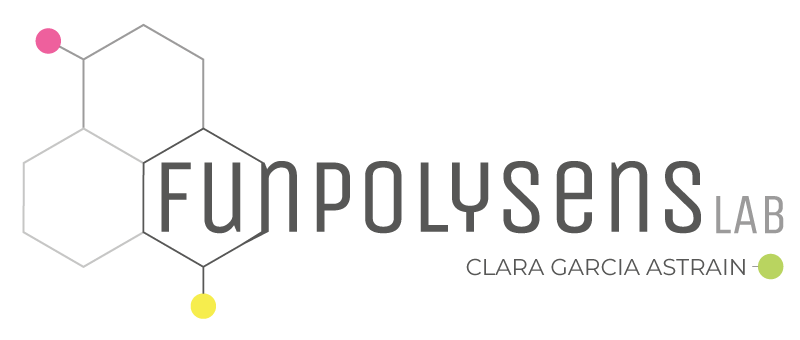Research Areas

Our research is centered on the development of functional polymers for sensing applications, with a strong expertise in polymer functionalization, biofabrication, and polymeric sensing technologies. Our primary objective is to design advanced polymer-based materials that can serve as sensors in diverse fields such as disease monitoring, food safety, and environmental sensing. We strive to develop functional polymers that provide versatile, reliable, and efficient sensing solutions across various sectors.

Functional Polymers
Our research focuses on the development of functional polymers with fluorescent properties for real-time monitoring of biological and environmental processes. These fluorescent polymers enable highly sensitive and non-invasive sensing, facilitating the development of new therapeutic strategies. Additionally, their application extends to environmental and food safety monitoring, allowing for rapid detection of contaminants and pollutants through optical-based sensing technologies.

Bioink development
Our research in bioink development focuses on the functionalization of polymers to enhance the printability and resolution of bioprinted structures. By incorporating click chemistry and dynamic chemistry techniques, we enable precise control over polymer modifications, improving the mechanical and biochemical properties of bioinks. Working with synthetic polymers, biopolymers, and decellularized extracellular matrix components, we design bioinks that closely mimic the characteristics of target tissues. This approach ensures optimal cell viability and functionality while improving the precision of 3D bioprinting. Through polymer modification, tailored rheological properties, and innovative chemistry, we aim to create advanced bioinks for tissue engineering, regenerative medicine, and in vitro modeling applications.

Monitoring In vitro 3D models
We develop advanced polymer-based sensors for real-time monitoring of three-dimensional in vitro models that closely replicate physiological conditions. By integrating innovative sensing technologies, we enhance the detection and tracking of diseases in 3D environments, providing deeper insights into cellular dynamics and disease progression. This interdisciplinary approach combines biomaterials, sensing technologies, and engineering principles to improve the study of biological processes and accelerate the development of more effective treatments. Our research aims to refine disease modeling and advance the discovery of new therapeutic solutions.
